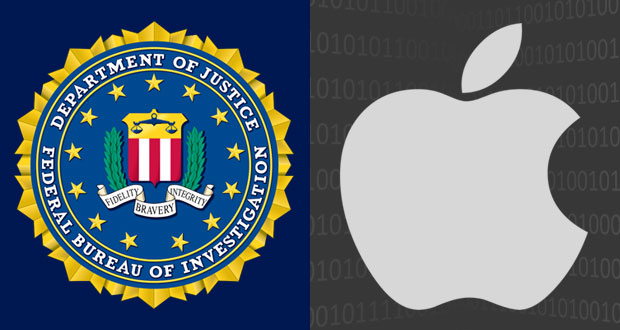A federal magistrate judge on Monday granted the Department of Justice’s request to delay a much-anticipated court hearing that had been scheduled to take place on Tuesday in Riverside, Calif.
The court granted an indefinite stay, after the DoJ said it had found a possible method of accessing the encrypted iPhone of the San Bernardino terrorist without the help of Apple.
The Justice Department said it would issue an update on April 5.
Assistant U.S. Attorney Tracy Wilkison asked Judge Sheri Pym to postpone the scheduled hearing to give investigators time to see whether the method would work. The DoJ notified lawyers for Apple at 2:30 p.m. Monday, based on the filing, asking them for Apple’s position on the matter, and Apple’s lawyers in turn asked for a status conference by telephone.
“Our top priority has always been gaining access into the phone used by the terrorist in San Bernardino,” said DoJ spokesperson Melanie Newman. “With this goal in mind, the FBI has continued in its efforts to gain access to the phone without Apple’s assistance, even during a month-long period of litigation with the company.”
As a result of these efforts, “an outside party demonstrated to the FBI this past weekend a possible method for unlocking the phone,” she said.
Investigators must first “test this method to ensure that it doesn’t destroy the data on the phone, but we remain cautiously optimistic,” Newman added.
Broad Ramifications
“This is good news, because a legal precedent requiring companies to write backdoors is incredibly dangerous to the security of millions of iPhone users,” said Kurt Opsahl, general counsel for the Electronic Frontier Foundation.
“This case was always about more than access to a single phone,” he told the E-Commerce Times.
“It was an attempt to set a legal precedent that requires any company to undermine their users’ security at the FBI’s request,” Opsahl contended. Security is vital to protect the information on your phone, and the FBI should work to enhance user security, not against it.”
Taken by Surprise
The DoJ’s request came as a bolt from the blue, Apple attorneys told reporters in a conference call Monday evening. The basis for the department’s request was a mystery.
However, if the DoJ should pursue the case at a later date, then the company would ask it to disclose everything the government knows about how to access data, the Apple attorneys said. Further, they would want to question the entity that contacted the government with the possible method for unlocking the phone.
Over the past month, the government gave Apple no indication that it was attempting to contact third parties, they noted.
“We can only speculate as to the exact reason for the delay, but at this point it seems that the FBI has wasted everyone’s time pushing a legal theory that is now moot,” said Eli Dourado, director of the Technology Policy Program at George Mason University’s Mercatus Center.
“Let’s hope they never do this again,” he told the E-Commerce Times.
Court Fight
The DoJ and FBI have battled Apple for more than a month in an often bitter public debate over whether Apple should be forced to provide a backdoor method to give investigators access to data stored on the iPhone of San Bernardino shooter Syed Farook.
Along with his wife, Farook shot up a holiday party in an ISIS-inspired spree, killing 14 and wounding 22 people. Both Farook and his wife, who is suspected of helping to radicalize him, were killed in a shootout with law enforcement.
Graceful Exit?
The indefinite postponement of the hearing may be a sign that the government is looking for a graceful exit from a civil liberties nightmare that was beginning to divide Congress along nontraditional lines.
“This would be a very good outcome,” said Marc Rotenberg, executive director of the Electronic Privacy Information Center.
“The government may use all lawful techniques to obtain evidence authorized pursuant to a court order. Apple drew the right line in this matter,” he told the E-Commerce Times, and “it appears the FBI is respecting that line.”
Fierce Resistance
Apple, which has cooperated with investigators in numerous other cases, publicly attacked the government’s request for assistance in the San Bernardino case. Its chief concern was that creating a new set of code to allow investigators to access one phone would open the door for additional requests.
It also would leave it vulnerable to cooperation demands with various governments around the world that might have dissidents they wanted to crack down upon, Apple maintained.
“This case was never about a phone, it was always about a precedent,” said Evan Greer, campaign director of Fight for the Future.
“We’ll be watching carefully to see how this unfolds, but for now it appears that the government is attempting to gracefully back down from its dangerous request that Apple build a backdoor,” he told the E-Commerce Times.
The group had planned to demonstrate with an online campaign, as well as protesters outside the courthouse on Tuesday, and they will still be there, according to Greer.
“Decision makers need to know that the public and security experts oppose dangerous backdoors in encryption,” he said, “so they don’t attempt something like this again.”























































Social Media
See all Social Media